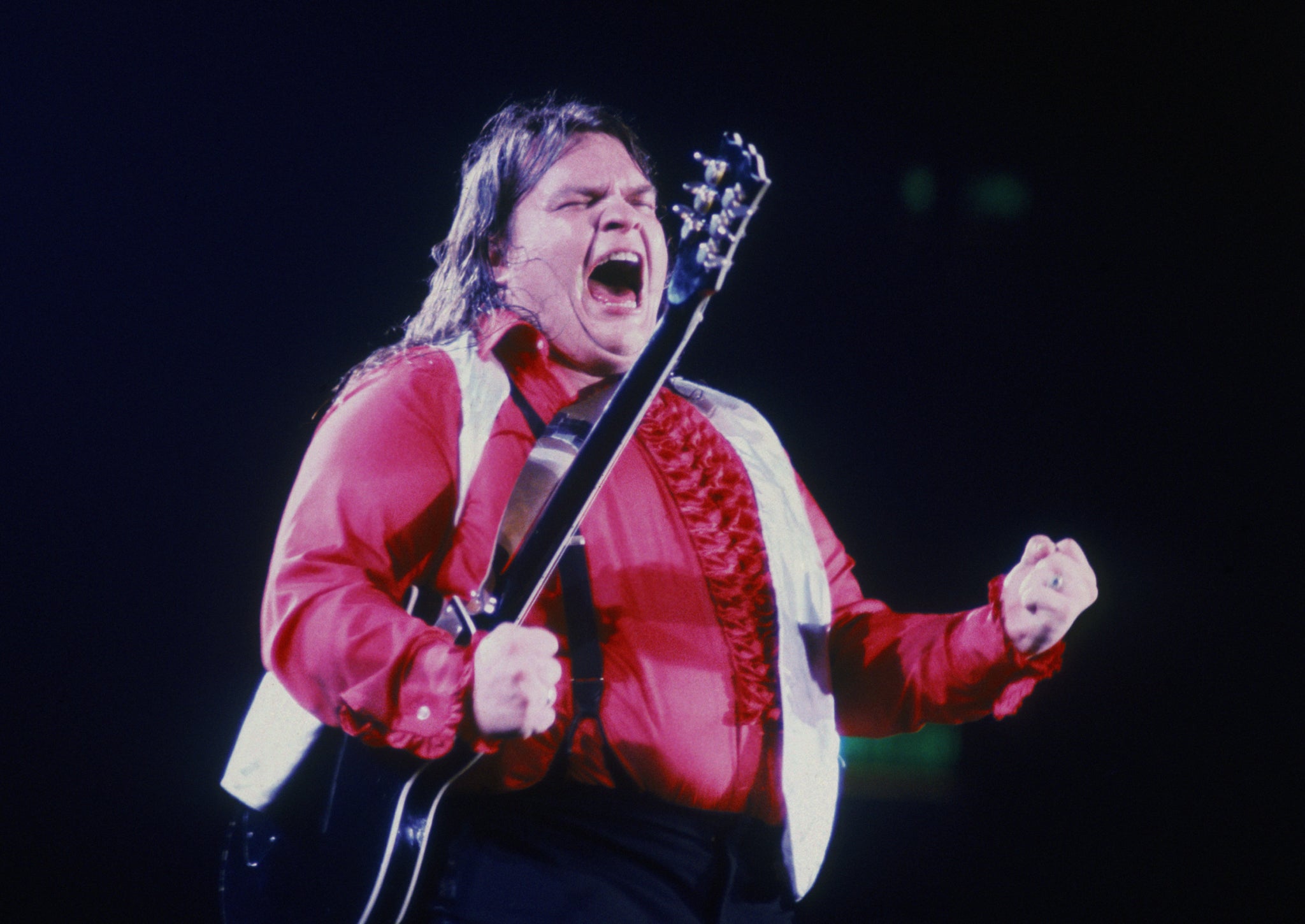Meat Loaf is gone – now we’ll never know what he wouldn’t do for love
I personally have sung no single song at karaoke more times than I’ve performed ‘Dead Ringer For Love’


A mischievous rumour went around for a long time that the New York Times was in the habit of referring to the singer of “I Would Do Anything For Love”, “Bat Out of Hell” and “Dead Ringer For Love” as “Mr Loaf”.
The urban legend remained, despite a column by no less a figure than William Safire debunking it. Meat Loaf – aka Michael Lee Aday, who has sadly died at the age of 74 – was so ubiquitous a figure in the 1980s and 1990s, and so auto-spoofing from the start, that the myth felt deeply pleasurable.
Meat Loaf was theatrical and garish; his eye-rolling, fluted hand gestures, demented hair flicks, brocade shirts and hankies deployed with a flourish only matched by the expansive operatic quality of his prog-pop.
My first encounter with Meat Loaf was his appearance as Eddie in The Rocky Horror Picture Show, a scene-stealing performance in which he arrives crashing through a wall on a motorbike, sings a show-stopping rock’n’roll pastiche called “Hot Patootie Bless My Soul” and is then pick-axed to death by Tim Curry. Nobody could possibly give more in four minutes of screentime.
That cameo shows the qualities that made Meat Loaf so strangely loveable a character: deep charisma, a unique physicality that he seemed content to riff on, pleasing vocals and a sense of humour.
In the early 1990s, somewhat after his heyday, Meat Loaf returned with “I Would Do Anything For Love”, with its high-camp video playing on Beauty and the Beast, and became briefly unavoidable once more – the subject, indeed, of a million different scabrous jokes about what the “that” that he wouldn’t do might be.
At parties we solemnly slow-danced to the song as twelve-year-olds – I would have been shuffling about with girls twice my height who were platonic pals rather than objects of romantic interest, and deflecting from the fact that the slow-dance was a ritual that didn’t interest me at all by belting out the lyrics.
But now, Meat Loaf is gone, and has taken with him the secret of exactly what that “that” really was.
Still, his legacy lives on, not least in my own memories: because of the success of “I Would Do Anything For Love”, I bought Bat Out of Hell on tape with my pocket money, and it duly received a couple of reticent plays in the car from my parents before hitting the scrap-heap.
Though his musical oeuvre, beyond the hit singles, wasn’t quite up our collective street, Meat Loaf was likeable enough – and he was one of those figures that I quite naturally carried through to university, handy for an ice-breaking, pissed up singalong with new hallmates.
That sense of humour is evident nowhere more than in Meat Loaf’s duet with Cher, “Dead Ringer For Love”, with its hilarious lyrics (“You’ve got the kind of lips that do more than drink/You’ve got the kind of mind that does less than think”) that found riotous match in a music video for the ages.
In the video, Meat Loaf and Cher play a kind of punk Benedick and Beatrice, having it out in a sleazy little bar over a pair of pints of beer – Meat Loaf bringing a winking charisma to proceedings, and Cher repaying his braggadocio with gum-chewing derision. Cher is the perfect foil for Meat Loaf in the song, and a good comparison point for him throughout his career – both of them have the feeling of good-natured, alternative-looking outsiders; both endured over the ages through likability and versatility, on screen and in music.
Meat Loaf’s power-pop felt as if Bruce Springsteen had been fed through a Campness machine (a camputer?): in amping up Springsteen’s bells-and-whistles – all the piano riffs and driving choruses – and giving them a vocal turn that was less macho and more theatrical, he came up with something sort of androgynous.
In other words, he bridged the gap between The Boss and Bonnie Tyler. Meat Loaf played everything relatively deadpan, giving his fans a bit of fantasy (that Beauty and the Beast-based video for “I Would Do Anything For Love”!!) when they wanted it, but he was also knowing about his persona, in ways that his boring detractors couldn’t see.
To keep up to speed with all the latest opinions and comment sign up to our free weekly Voices Dispatches newsletter by clicking here
In the 1980s and 1990s, when I was growing up, Meat Loaf was ubiquitous and the object of a great deal of derision: this was the era when the excesses of the 80s turned to maudlin grunge, and straight-up rockists declared war on silly pop music.
But, like Celine Dion, who also came to prominence singing a Jim Steinman song (”It’s All Coming Back To Me Now”), Meat Loaf has managed to endure and become a figure commanding enormous public goodwill, as witnessed by the outpouring of fondness since the announcement of his untimely death.
Disliking Meat Loaf, for whatever reason, would be a sign in somebody of immense prissiness and a total lack of joie de vivre. I know that I personally have sung no single song at karaoke more times than I’ve performed “Dead Ringer For Love”, usually playing the Meat Loaf to my friend Ben’s Cher, stretching right back to university days; I know from experience that it is literally impossible to sing the lines “You got me begging on my knees, c’mon and throw the dog a bone/ A man he doesn’t live by rock ‘n roll and brew alone” without beaming from ear to ear.
Farewell, Mr Loaf, and thank you.
Join our commenting forum
Join thought-provoking conversations, follow other Independent readers and see their replies
Comments
Bookmark popover
Removed from bookmarks